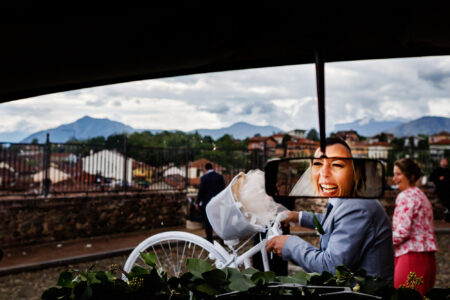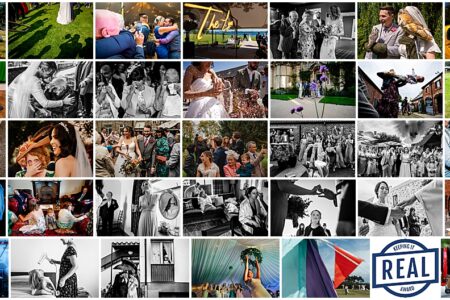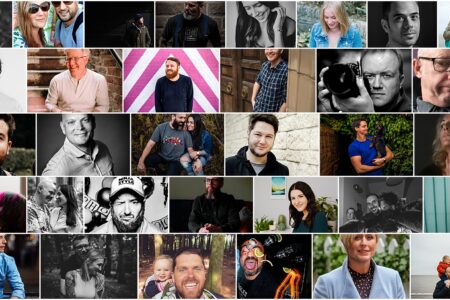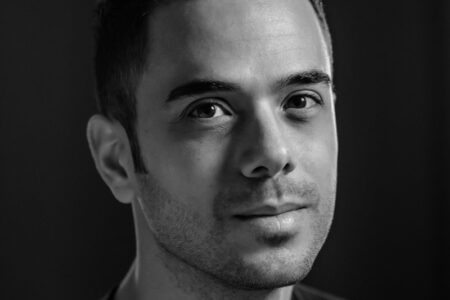Despite having a picture of Liam Gallagher on his website Ian Weldon is no wannabe rockstar wedding photographer – in fact he says he’s not even a wedding photographer!

So let’s get this right, you’re not a wedding photographer, but you DO shoot weddings. Talk to us about exactly what you mean by this.
We all have a perception of what a wedding photographer is, and for the most part that’s pretty accurate. By its nature wedding photography is commercial photography. There are requirements from the industry, the couples you shoot for and for your own promotion. There’s not much room for exploration here. I’m not saying this is wrong – I’m just defining my understanding of the situation – but I’m saying it’s different to what I do. So, by my own understanding, I am not a wedding photographer.

You used to work in a studio before shooting weddings, looking back how do you reflect on this experience?
I had a studio for a few years, and was shooting mainly white background family ‘lifestyle’ type of photography. It was a popular thing at the time with nationwide studios like Venture seemingly making a lot of money out if it. As my real motivation, at the time, was to earn money, it seemed like a good idea. I had no idea what I was doing and when I look back at those photographs you can really see it. But hey, we all have to start somewhere.

How did clients take to your approach to shooting weddings at first? Were they all fully on board or did it take a while for everyone to buy into it?
It was a gradual thing really. Through my study I started to look at the world around me differently. I was learning about photography and applying that to weddings and the photographs just became a consequence of that process. They were the photographs I was making and that’s what I showed people. If my perspective changes I’ll make different photographs, no doubt, and they are photographs that I’ll show. I’m not trying to hoodwink people into one thing and giving them something different. They like the photographs, they connect with them in some way and they commission me. So they are on board from the start, it’s their idea.

I think we all seek peer approval, how did the Martin Parr thing come about and more importantly how did it make you feel?
He was speaking at a conference in Barcelona, mostly wedding photographers I believe, and showed some of his photographs from weddings. Someone mentioned my name to him and he looked me up, sent me an email saying that he liked my work and that we should meet. Which we did, and Martin said he’d like give me a show at the foundation. That evening we shared a pizza, pasta and a bottle of wine in an Italian restaurant in Newcastle. Not surreal at all…..
I got into photography because I thought it would make me look cool. Somewhat idiotic, but a way in is a way in. After scratching around for a couple of years I realised that I was as unfulfilled as I had been before photography. It was around this time that I had to make some sort of decision about what I actually wanted. I was becoming interested in photography history and that helped me to look at photographers, and photography differently. Photographers like Martin, who I previously didn’t understand started to make sense and the possibilities of photography started to reveal themselves.
Martin changed what I perceived photography to be and in turn that had a profound effect on me as a human being, for the better. I have accumulated many accolades as a wedding photographer over the years, but to have Martin take an interest in my work, to be as supportive as he has been over this last year, to give me a solo show at the foundation and co-publish my book, it’s the greatest of compliments.

I know some of the venues you’ve worked at can be very regimented and pretty much demand you do things a certain way, how do you approach situations like this?
I’m not sure I’ve ever had any real demand or restrictions from a venue. Most likely because I have no demands or restrictions on myself.

The annoying random couple asks you to take a photo of them at a wedding, what do you do?
Take the photo. Wether I use it or not afterwards is a different matter. I’m not going to the wedding with a preconceived idea of how it looks, I’m responding to what’s around me, and how can we ever know where that one great photograph will be. There are very few really great photographs, and I’m probably not qualified enough to even compile a handful of those, so the act of photography itself, in relation to photographs made, is somewhat impossible. Take every opportunity you can.
Tell us about your personal projects and how they’ve shaped your wedding photography?
I don’t distinguish between the two. I approach both in the same way. It’s not so much about the subject, but my relationship to it, what I learn from it, and what it contributes to photography.

How big a part of your business is commercial photography now? Is this something you see yourself moving into more than weddings in the future?
Not so much, but that’s slowly starting to change. It’s good to be in a situation where people recognise and like what you do and are willing to give you money for it. I’d always like to shoot weddings, to add to that body of work. They’re great places to make photographs.
How much does communication on a wedding day allow you to ‘get away’ with some of the stuff you shoot? Are you always chatting to guests to make them feel comfortable, or in and out so fast they don’t have time to really think about how you just took their photo?
I think I’m a good communicator, and personable, so yes, you have to be able to do that well in a genuine manner. I don’t think I’m ever trying to ‘get away’ with making some pictures. It’s just how I work.
How much does being 100% yourself and not diluting your true nature/vision play a part in being successful as a photographer?
We would have to define successful – If you are entering into a wedding photography business to make money then you would mostly have to be whatever is expected from the client and the industry. You could be financially successful without ever having to be yourself at all. And I see this often.
If your motivation is something else; like your contribution to photography itself, creating a body of work for future generations and the self study that comes from the practice of observation and representation, then yes, being 100% yourself is imperative. I’m not suggesting that these are the only two approaches, just that there is more than one answer.









Comments